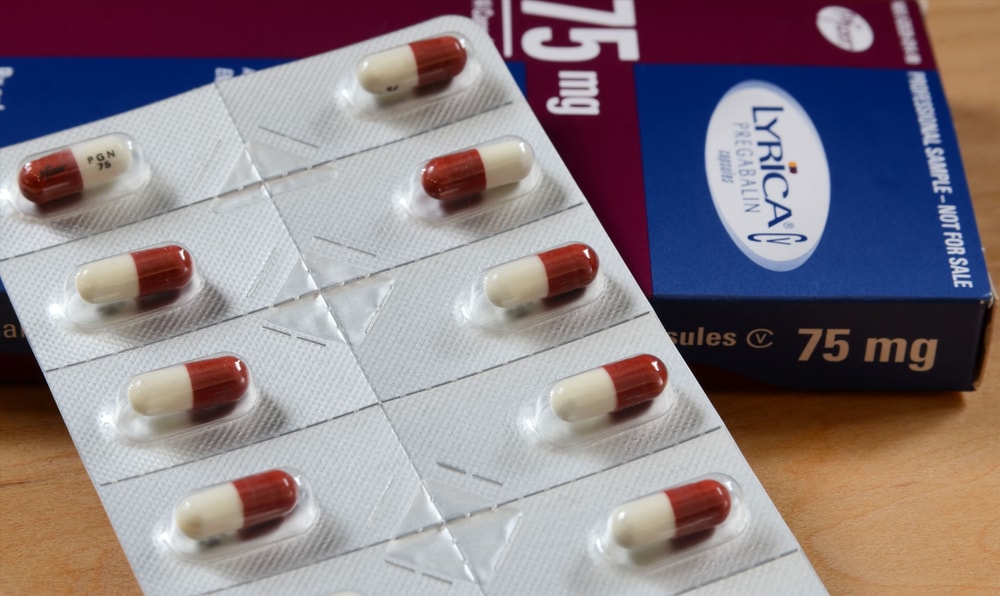Over 16 million people take Lyrica or pregabalin every day to treat nerve pain disorders and other conditions. Thousands more misuse the drug, since it has potential for abuse when you don’t take it as directed. Like many people who take prescription drugs, you may worry about whether Lyrica can show up on a drug test.
It’s common to have a urine or hair screening for common drugs when you receive an employment offer. You may also be subjected to drug testing for legal reasons or after a workplace accident.
If you have reason to worry about Lyrica on a drug test, it’s time to set those worries aside and find out the facts.
Here’s what you should know about how long Lyrica can stay in your system:
How Long Does Lyrica Work?
If you’re taking Lyrica to control:
- Diabetic nerve pain
- Spinal cord injury pain
- Chronic shingles-related pain
Then you may not start feeling the effects for 1 to 4 weeks after you start taking the drug. However, the side effects can start as soon as your body starts absorbing the drug.
The side effects of Lyrica include:
- Blurred or double vision
- Dry mouth
- Dizziness
- Fatigue
- Headache
- Sleepiness
- Tremor
These body and brain effects typically last 3 to 6 hours. Some of them can be permanent, such as tremors. Pain relief usually stops within 1 to 2 days after stopping Lyrica.
In addition, abusing Lyrica causes euphoria as a side effect. This can start within an hour of taking the drug and rarely lasts longer than 6 hours. 3 hours is a more common length of effects.
It’s very important to only use Lyrica as directed. Taking too much Lyrica is dangerous to your health.
How Long Does Lyrica Stay in Lab Tests?
The length of time that Lyrica shows up on a lab screening depends on:
- The type of drug test
- Drug use history
- Medical history
- Health and metabolism
It’s also affected by the half-life of Lyrica, which is 6.3 hours. That means it takes that long for your body to filter half of the Lyrica from your bloodstream.
It normally takes 5 half-lives to remove a drug from your system entirely. For Lyrica, that means it could show up on a test for 31.5 hours or close to three days.
That varies for different body substances. For instance, hair can show substance use for up to 90 days But it’s rare for blood to show any substance for longer than a few days!
How Long Does Lyrica Stay in Your Urine?
Most people test positive for Lyrica around 3 days after the last use. You can test positive for up to 5 days, but it’s rare to test positive for longer than 6 days.
That being said, it’s not likely that you’ll be tested for pregabalin. Lyrica is not part of a standard drug screening.
You could still receive a urine test if someone has reason to believe that you’re abusing Lyrica specifically. But as of 2020, Lyrica is not part of a standard urine panel.
How Long Does Lyrica Stay in Your Hair?
A 2018 study found that Lyrica can show up on a hair test, but it’s not clear how long it stays in your hair. At the time of the study, the test was being used for research purposes, not commercial testing purposes.
However, hair can hold evidence of most drug use for at least 90 days. It’s the least time-sensitive method of drug testing. It’s safe to assume that Lyrica could show up in your hair for a month after use.
How Long Does Lyrica Stay in Your Blood?
Lyrica can remain in a blood sample for 3 to 5 days after the last use. It’s rare for Lyrica to show up past 6 days, but possible.
Blood tests for Lyrica are usually to ensure that you’re using the drug as directed. Your doctor may check to make sure you’re taking the medication.
More rarely, your employer or a legal representative could order a drug test. They would need to have reason to believe that you’re abusing Lyrica. There’s no blood panel that includes Lyrica routinely.
How Long Does Lyrica Stay in Your Saliva?
Like your blood, your saliva can hold evidence of Lyrica for 3 to 5 days after the last time you used it.
And just the same as a blood test, you’re not likely to have a saliva test for Lyrica.
Lyrica isn’t part of a standard drug panel because it’s not an illicit drug and its potential for abuse is low.
You might be saliva tested for Lyrica if there’s a reason to think you’ve been abusing it, such as if you were involved in a workplace accident.
Can You Detox From Lyrica Faster?
You can’t detox from Lyrica faster. Your body removes substances at a rate that you can’t control.
Some factors that affect the length of Lyrica detox include:
- Length of Lyrica use
- Whether you use Lyrica as directed
- Medical history and health
- Metabolism
- Amount of illicit drug use
As you can see, that’s a lot of contributing factors!
You can increase your odds of a successful detox by getting medical help before you stop Lyrica. Your doctor may ask you to taper your dose to minimize the risk of withdrawal symptoms. This means gradually decreasing your dose over time.
Get Treatment for Lyrica Abuse
If prescription drug abuse has you worried, then it’s a good time to seek help. You can recover from drug abuse with the help of a local rehab center.
Some effective treatment options include:
- Cognitive-behavioral therapy: This kind of therapy challenges your thought processes, helping you make better choices and cope with your emotions.
- Medication-assisted treatment: Drugs such as Suboxone can help control cravings. Talk to your doctor if you think you’re a candidate.
The right blend of treatment depends on your unique history. Get in touch with Rehab Adviser today to get started!
This content does not replace legal advice! Talk to your attorney before making decisions that could lead to drug charges.
Sources:
- Lyrica side effects
- Kintz, P., Ameline, A., & Raul, J. (2018). Assessment of pregabalin use by hair testing. Substance Use & Misuse
- Frequently asked questions: Lyrica.
- Spigset, O., & Westin, A. A. (2013). Detection times of pregabalin in urine after illicit use. Therapeutic Drug Monitoring

